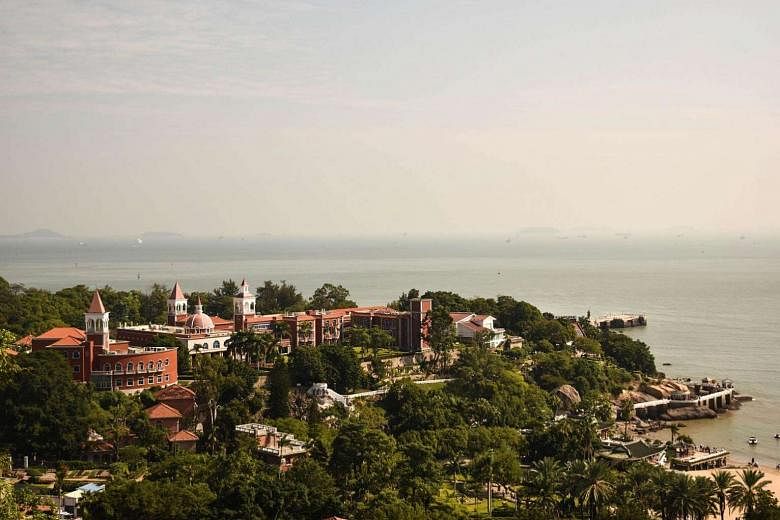KRAKOW, Poland - Gulangyu, the pedestrian-only island near the city of Xiamen, in Fujian province in China, was put on the prestigious World Heritage List as a cultural site on Saturday (July 8).
This comes one day after Qinghai Hoh Xil became the 51st Chinese site inscribed on the United Nations list, Xinhua news agency reported on Sunday (July 9).
Mr Fu Qisheng, head of the Fujian Provincial Bureau of Cultural Heritage, told Xinhua: "The successful inscription of Gulangyu historic international settlement to the list marks the fact that China's world heritage undertakings have made significant progress, and shows that the cultural construction and cultural relics protection in Fujian Province has reached a new level.
"For those working for the Fujian cultural relics protection, it is both great honour and a huge responsibility."
Gulangyu Island is located on the estuary of Jiulong River facing the city of Xiamen, according to Xinhua.
Its heritage includes a settlement of 931 historical buildings bearing a range of local and international architectural styles, historic roads and gardens, said Xinhua.
On Friday, Unesco declared the Hoh Xil nature reserve in China's Qinghai Province a natural heritage site in a controversial decision challenged by pro-Tibet activists, Agence France-Presse reported.
The Hoh Xil nature reserve, located on the Qinghai-Tibet Plateau, is home to over 200 animal species. More than 20 of them are state-protected, including the Tibetan antelope. It is China's largest world natural heritage site, covering an area of 45,000 sq km.
China has invested billions of dollars into resettling Tibetan herders, who have for centuries led a nomadic life, moving regularly to seek fresh grazing for their animals, said AFP.
Beijing says the policy is aimed at improving nomads' living standards, creating markets for their livestock and the traditional herbal medicines they gather as well as curbing rampant environmental degradation on the roof of the world.
But while some Tibetans welcome the changes, many worry about the disappearance of a lifestyle that has endured for hundreds of years, and see the resettlements as part of a broader erosion of Tibetan culture in China, AFP reported.
China's representative insisted at the Unesco meeting on Friday that Beijing would never engage in forced resettlement on the Hoh Xil reserve, according to the Polish news agency PAP.

